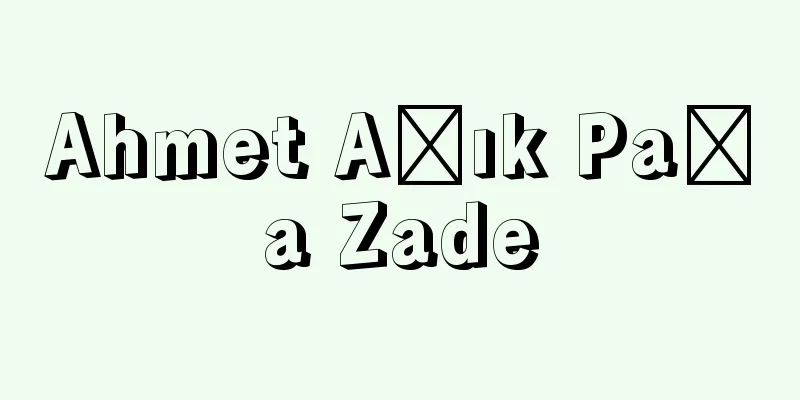Noren - Curtain

|
(1) Generally, it refers to a cloth store seal with the store name or product name written on it that a store hangs for advertising purposes. Originally, it was a hanging curtain that was used to cover the blinds of Zen temples to prevent drafts in winter. In picture scrolls from the Heian and Kamakura periods, noren were already seen hanging at the entrances of houses, and were called tobari. From the end of the Muromachi period, they came to be called noren (meaning a hanging mat). The design can be seen in a picture of a tatami mat maker in the "Kamihon Jakushoku Shokunin Zukushie" (Paperback Paintings of Shokunin) owned by Kita-in Temple in Kawagoe City, Saitama Prefecture. Around the Momoyama period, noren began to be written with the store name, and in the Edo period, colors other than navy blue and of various lengths began to be used, and noren also became a symbol of the store's credibility. (2) Goodwill is an intangible economic benefit that a merchant obtains by continuing business for many years. It is also called "old business" and corresponds to "goodwill." Its contents include relationships with customers and suppliers, business reputation, credit, and business secrets, and are not clearly rights, but are factual relationships with economic value. The Companies Act regards goodwill as a difference concept that can be recorded when the price paid by the surviving company or the company that has taken over the business in a reorganization exceeds the amount allocated to the assets acquired and liabilities assumed (Corporate Accounting Rule 11). Goodwill should be amortized regularly in a reasonable manner within 20 years (Accounting Standard for Business Combinations, Article 32). Source: Encyclopaedia Britannica Concise Encyclopedia About Encyclopaedia Britannica Concise Encyclopedia Information |
|
(1) 一般には,商店が宣伝用などに掛ける屋号や商品名を記した布製の店印をいう。もとは禅寺で冬季の隙間風を防ぐために簾の間を覆った垂れ幕のこと。すでに平安・鎌倉時代の絵巻物などに,家の出入口に下げたものがみられ,幌(とばり)と呼ばれていた。これが室町時代末期から暖簾(垂れむしろの意)と呼ばれるようになった。埼玉県川越市の喜多院蔵『紙本著色職人尽絵』の畳師の絵に図柄を見ることができる。桃山時代頃から屋号を意味するものを書くようになり,江戸時代になると,紺色以外のものやいろいろな長さのものも用いられるようになり,さらには暖簾が商店の信用を表すシンボルともなった。 (2) 多年にわたる営業の継続によって商人が得る無形の経済的利益。老舗(しにせ)ともいい,グッドウィル goodwillに相当する。その内容は得意先関係,仕入先関係,営業の名声,信用,営業上の秘訣などで,はっきりした権利とはいえないが,経済的価値のある事実関係である。会社法は暖簾について,組織再編行為において存続会社や事業の譲受会社などが支払った価格と,取得した資産および引き受けた負債に配分された額を超過した場合に計上することのできる差額概念ととらえている(会社計算規則11)。暖簾は 20年以内の合理的な方法で規則的に償却すべきものとされる(企業結合会計基準32項)。 出典 ブリタニカ国際大百科事典 小項目事典ブリタニカ国際大百科事典 小項目事典について 情報 |
<<: Norenwake (opening a business) - Norenwake
Recommend
007 Series - Zero Zero Seven Series
An international action and adventure series starr...
Sea eagles - Sea eagles
…Of the birds in the family Accipitridae, the sma...
Kamo Wakeikazuchi no Mikoto (Kamo Wakeikazuchi no Mikoto)
The deity worshipped at Kamo Wakeikazuchi Shrine (...
Shinjo clan
A feudal lord in the early modern period. He is sa...
Taxes delivered to Kyoto
...A type of tax paid to Kyoto during the Muromac...
Rhizobium - Root nodule bacteria
Also known as rhizobia. A general term for bacteri...
Dominguez, O. (English spelling) DominguezO
In art, in addition to inheriting the ideas and m...
Autumn leaf viewing - Momijigari
[1] Visiting the mountains and fields to view autu...
Small drum - Kotsuzumi
A Japanese string-fastened membranous instrument. ...
Cissus quadriangularis (English spelling)
… [Mitsuru Hotta]... *Some of the terminology tha...
Kingdom of Tonga (English spelling)
...Official name = Kingdom of TongaArea = 747 km2...
Pteridology
…While the living world is divided into two major...
Rock wren
...The rifleman Acanthisitta chloris (English nam...
Audit corporation - Kansa Hojin
A special corporation established under the Certi...
Albazin (English spelling) Албазин/Albazin
A Russian fortress located about 450 km upstream f...









